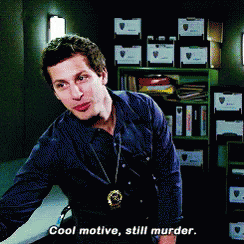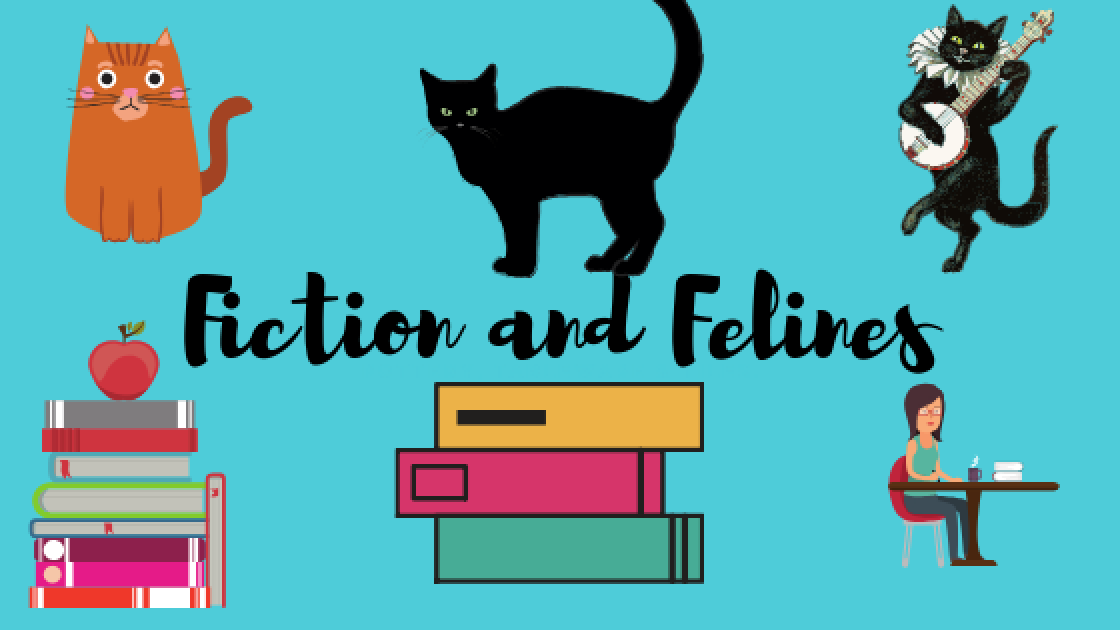Hey everybody! In preparation for Autism Awareness Month/Autism Acceptance Month, I asked a couple of people for some questions about autism and being autistic so I could do a Q+A. Here we go:
Q: I’ve heard a lot of terms used – autistic, on the spectrum, person who has autism, etc – as much as one person can speak for a group, any preferred terms or terms to avoid?
A: Autistic person: yes
On the spectrum: no
A person who has autism/person with autism: generally no, but some still use it
Has Aspergers: generally no, mostly because the term is outdated, and for some, carries too much of a horrific association (source).
Aspie: some of us, not sure about the rest of us
Q: Tell me more about stimming.
A: Stimming is short for “self-stimulatory behaviors” (source) and can include repetitive motions, like rocking or tapping, as well as other sensory inputs, like listening to the same sound over and over. Stims are helpful for dealing with sensory overload (like if a room is too loud or crowded) and emotional overload (I stim a lot if I’m having a really bad mental health day).
Also, per the article linked above, do not try to stop me or other autistic people from stimming. Suppressing stims creates more anxiety, not less. This is also part of why treatments like ABA, which often seeks to eliminate stimming can be so harmful.
My stims include tapping, rocking (I even have a rocking chair at my desk), sucking on things (I bought Lemonheads to cope with the changes in my routine caused by the safer at home order), and listening to the same songs or watching the same videos repeatedly.
Q: Why are autistic people uncomfortable with eye contact?
A: I’ve never really been able to put that into words, but I think this post on Thinking Person’s Guide to Autism (which is generally a good source that you should check out) does a good job.
Q: What sorts of assumptions about people with autism do you find yourself having to bat down again and again?
A: I feel like I have to push back against the idea that we’re one of two things: genius (often rude genius) or “low-functioning,” rather than some combination of the two, if not something else entirely. In addition to the title character from Rain Man, people like to compare autistic people to rude geniuses like Sheldon Cooper from The Big Bang Theory, Sherlock Holmes (BBC version, specifically), or the title character on House MD. Such comparisons aren’t necessarily entirely off-base, but they’re frustratingly reductive. On the other hand, a lot of people also reduce autistic people to the “low-functioning” stereotype as well, assuming that because we’re autistic we’re not going to leave the home or keep a job and things like that.

I’m smart, but I’m not Greg House smart (at least I don’t think so). I can come across as rude, due to a lack of understanding of social cues, but I don’t think it’s part of my personality. I have my repetitive behaviors, but I still function well in day-to-day life. I live at home but that’s because I don’t have a job, and, consequently, don’t have money, not because I don’t have the skills.
Q: How do you think about terms like “treatment” and “cure” as applied to autism?
A: They make me anxious. Treatment is vague. Does it mean things like ABA, which harms autistic people by forcing them to hide their stims and can often be abusive? Dietary treatments that are ineffective at best? (That is not to say that dietary treatments are inherently bad, but some of them are). Bleach? (I wish I was kidding: source)
As for a cure, in addition to being scientifically impossible or at least unlikely, stinks of eugenics.
Q: What are some things you notice and find hilarious about non-autistic people?
A: Non-autistic people’s tendencies toward autistic/autistic-adjacent behaviors
- Memes and TikTok are similar to social scripts (here’s a link to one of my favorites), and, in the case of TikToks, there’s not quite echolalia there (since echolalia’s involuntary: source), but there’s a similar tendency to use other people’s sounds to communicate.
A timely example: https://www.tiktok.com/@austinchiangmd/video/6804434560445598981
- Fidget spinners are just stimming.
Q: What do you notice about the world/society/culture that you think non-autistic people miss?
A: So, I’m writing this during the COVID-19 outbreak, and it’s shown me something else about non-autistic people that they don’t necessarily realize about themselves:
A lot of non-autistic people are realizing how important routine is to them now that their workplaces or other places that were part of their routine are closed. Focus is often placed on autistic people’s routines, but routines are more important to non-autistic people than they might realize.
Q: Are there examples of television/movies/books/music where you’ve felt particularly seen?
- Queens of Geek by Jen Wilde. It’s written by an autistic person, and that’s easy for me to see because the autistic character’s coping mechanisms and anxieties are familiar to me. Also, it has one of my favorite quotes:
“That’s what we do. We walk a tightrope every day. Getting out the door is a tightrope. Going grocery shopping is a tightrope. Socializing is a tightrope. Things that most people consider to be normal, daily parts of life are the very things we fear and struggle with the most, and yet here we are, moving forward anyway. That’s not weak.”
Some of my other favorite books by and about autistic people are:
- The State of Grace by Rachael Lucas, which is a slice of life novel about an autistic character
- On the Edge of Gone by Corinne Duyvis, which is about an autistic girl trying to get onto a generation ship before the meteor strikes. She’s worried that because of her differences, they won’t want her, and she has to advocate for herself around people who don’t understand things like why she doesn’t want to be touched.
- Funny, You Don’t Look Autistic by Michael McCreary: This is a memoir, and I really related to it, especially his experiences with school and with classmates using his misunderstanding of social cues to mess with him.
As for TV and movies, there haven’t been a lot of characters or movies/shows that made me feel seen, but I’ve always kind of identified with Spencer Reid from Criminal Minds

He’s a smart sweetheart who doesn’t really seem to understand normal socialization, kinda like me. The thing is, I haven’t been given a lot of autistic characters (and I didn’t hear good things about Atypical or The Good Doctor when those came out).
Q: Generally speaking, I wondered if there were thoughts in terms of what someone who comes to realize their partner is on the spectrum should know or understand or think about, as well as what resources may be useful for them.
A: I’ve never been in a romantic relationship, so this is not one that I have experience with, so I had to go looking:
A few tips from a video on neurotypical and autistic relationships (All of these apply well to non-romantic relationships as well):
- Learn how to communicate: specific and plain speech is often key. In my experience with familial relationships and friendships, I’ve run into this problem a lot. People will be sarcastic or make what they think is an obvious joke, and they’ll be confused when I get upset. Sometimes that confusion even turns into saying that I’m just overreacting, which is not helpful. Also, if you’re expecting something from me or you want something from me, you need to just say that. I’m not likely to understand otherwise, and that usually goes poorly for myself and the other person.
- Give the benefit of the doubt. I personally have experienced the need for giving the benefit of the doubt, especially with communication issues, both with other people needing to give me the benefit of the doubt (For example, the way that I speak can come across as rude even when that’s definitely not my intent) and me needing to give other people the benefit of the doubt (Like with sarcasm. Often, people are just being sarcastic, they’re not intentionally being mean)
- That said, neurotypical/allistic people, if we say that something you said bothers us, you shouldn’t just brush it off as “well, I was just being sarcastic, they shouldn’t be offended.” Okay? Intent does not negate the effect (Or, in the words of Jake Peralta: cool motive, still murder).

- Give time and space. Sometimes we need time to process things, especially choices and change. A couple weeks ago, my sister came to visit. So did my aunt. My sister gave me time to decide whether I was okay with that and how I wanted to handle that if I was. I still had some rough moments, but the weekend was so much better than it would’ve been without that.
You can also check out this post.
Q: When it comes to relationships and the experience of them, and I get curious in terms of how complicated it might be given certain deficits in social cue recognition, as well as how the needs and wants for intimacy may change given some individuals I’ve known who report less want for personal connection.
So, I can’t speak to romantic relationships because, as previously noted, I’ve never had a romantic relationship, but as for friendships and familial relationships, I find myself apologizing for more than I probably need to because I’m never sure if people are mad at me, especially since I understand that anger and frustration aren’t always obvious. This has resulted in my family watching me talking in a loop and my friends receiving some pretty weird texts.
I think my difficulty recognizing social cues has limited my ability to make friends, not necessarily because I bother people, although, that too, to a point, but because trying to keep up with social cues gets exhausting fast, so building friendships takes a lot more energy for me than it might for a non-autistic person.
As for changing needs and wants, I don’t know what causes me to want more or less connection or to want textual vs hearing or seeing someone, but it does change. Sometimes, I just need to hear someone familiar, whether they’re talking to me or not. Sometimes, texting is plenty. Sometimes, I’m just not up to connecting at all and need to be left alone.
Thank you, everyone! Please be sure to support autistic lead organizations, such as the Autistic Self-Advocacy Network, this Autism Awareness/Autism Acceptance Month!

Reblogged this on Autism Candles.